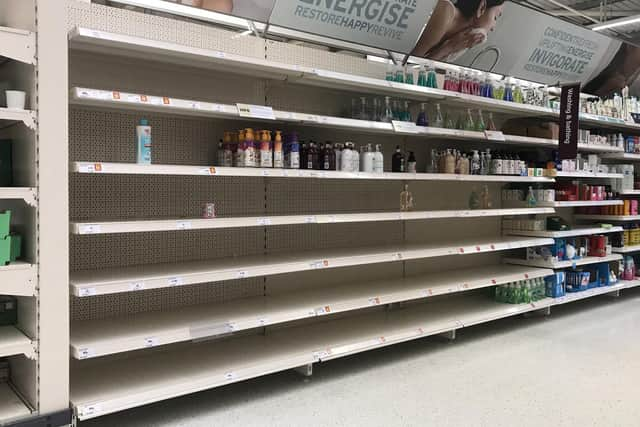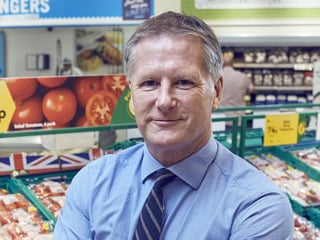Coronavirus leads to shoppers shunning the High Street in favour of online
Multiple sources told The Yorkshire Post that purchases of groceries from supermarkets remained strong but that there had been a significant increase in shoppers using online delivery services instead of physically visiting stores.
Retail experts and bosses were unanimous that supply chains with British supermarkets remained solid and there was contingency planning in place to ensure stores could operate effectively if they were hit by staff shortages owing to the virus.
Advertisement
Hide AdAdvertisement
Hide AdHowever, concerns are mounting about the longer-term impact on nonfood retail, with uncertainty over the economy and job security potentially set to deter households from purchasing big ticket items.


And with the likelihood that the need for social isolation will increase in the weeks and months ahead, there were warnings that the outbreak could be damaging for Yorkshire’s “experience economy” in which households prefer to spend money on doing things rather than physical items.
Sue Richardson, KPMG’s North Head of Retail, told The Yorkshire Post that the picture for UK retail was very mixed.
“People are still absolutely buying food,” she said.
“There has been some panic buying in certain lines. The businesses I have been talking to have seen a big uptick in online sales. But generally, food is performing fine at the moment.”
Advertisement
Hide AdAdvertisement
Hide Ad

Much of the reason for food supplies proving robust comes from the planning retailers carried out last year in preparation for a No Deal Brexit scenario.
Ms Richardson said: “The situation is very different, clearly. But there had already been a thought process with lots of them around understanding their supply chains and actually trying to mitigate the risk or dual supply.”
Ms Richardson said stores were “already thinking about how they redeploy the workforce that allows them to service store demand”.


Her colleague Jon Parker, a director in KPMG’s restructuring practice, said: “I think retailers are hoping there will be a lot of goodwill in their employees throughout this to help see them through what is going to be a challenging time.”
Advertisement
Hide AdAdvertisement
Hide AdConcerns for nonfood retail persists however, as households hold off on purchases while uncertainty mounts.
Mr Parker said: “The biggest challenge is going to be for the nonfood discretionary promises. There could be a scenario where people see less footfall in stores and that could have a big impact.”
Sources across Yorkshire confirmed that disruption to supply chains from China were already hitting sales and causing delays.


Mark Goldstone, head of business representation and policy at West and North Yorkshire Chamber of Commerce, said: “Impacts from Coronavirus on regional supply chains, especially those coming from China, have been felt across our regional manufacturing base resulting in slowing domestic sales. This compounds pressures already being felt from global trade wars and geopolitical tensions which have already slowed regional export growth since late 2018.”
Advertisement
Hide AdAdvertisement
Hide AdMr Goldstone also said he had seen many companies already introducing new working practices, including splitting teams across sites, home-working and limiting face to face staff engagement with external parties.”
A report from the York, North Yorkshire and East Riding Local Enterprise Partnership - seen by The Yorkshire Post - confirmed that food manufacturers in the region were actually seeing an increase in demand and that most larger businesses have implemented a reduction to international and nonessential travel.
Wednesday’s Budget included a raft of measures to protect small businesses from the fallout.
However Beckie Hart, regional director of the CBI, called on Government to widen these to larger firms which she said were often “anchors of their communities”.
“While some of the big players can dip into their coffers they do not have an endless pot of money,” she said.
“Government is going to have to widen their measures of support.”
